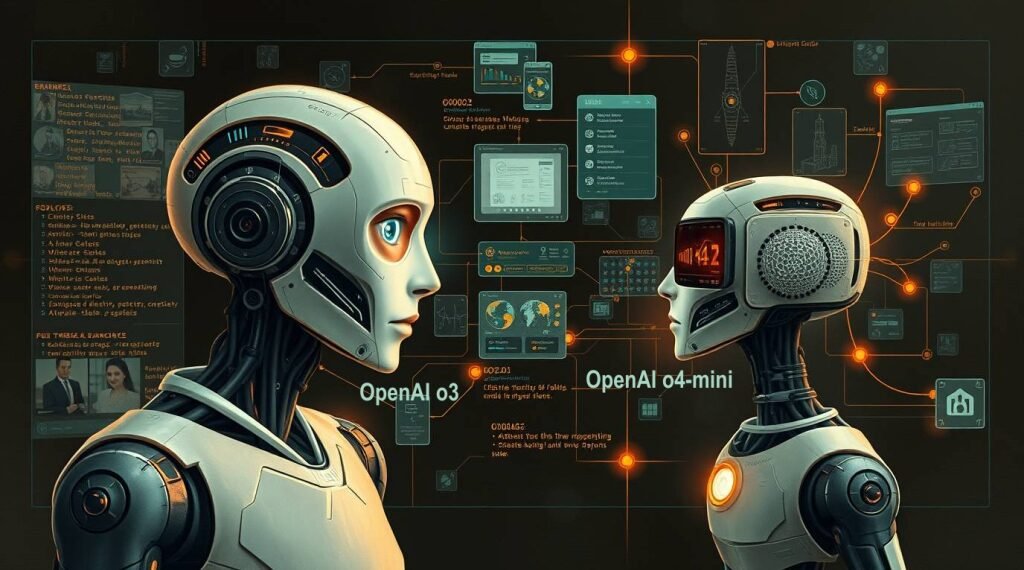Following the recent introduction of a new series of GPT-4.1 models, OpenAI has unveiled the o3 and o4-mini models, expanding its reasoning AI lineup. The o3 model, showcased in December, stands as OpenAI’s most sophisticated reasoning model thus far, while o4-mini is designed to be smaller, more economical, and quicker. These reasoning models are engineered to deliberate prior to responding, resulting in higher-quality outputs. In addition to excelling at coding, mathematics, and scientific tasks, o3 and o4-mini now include a significant enhancement: the capacity for visual comprehension. This means these models can utilize visual data in their reasoning process and can even discern low-quality or blurry images uploaded by users.
Moreover, o3 and o4-mini can autonomously utilize all ChatGPT tools, including web browsing and image analysis, to effectively solve complex, multi-step problems. OpenAI asserts that this capability moves the models closer to an agentic ChatGPT that can perform tasks independently for users. During their launch demonstration, a researcher illustrated how o3 could analyze a scientific poster and gather additional insights by searching online and scrutinizing various aspects of the image. According to OpenAI, the new models surpass previous generations with enhanced instruction adherence and more beneficial, verifiable outcomes, consistently outperforming earlier iterations even without their additional toolset.
A recent report suggested that the new models might even integrate diverse expert knowledge to propose innovative experiments, although OpenAI has not officially confirmed this. OpenAI o3 and o4-mini are presently accessible to subscribers, including users of ChatGPT Plus, Pro, and Team accounts, with the models appearing in the selection menu as o3, o4-mini, and o4-mini-high. Pro users will gain access to o3-pro in the following weeks. Additionally, both models are available to developers via the API.
To address safety concerns, OpenAI reported that the new models underwent rigorous testing within its safety program. Furthermore, OpenAI has initiated a $1 million grant program to support early projects, offering $25K increments through API credits. Proposals can be submitted on the OpenAI website.
The ainewsarticles.com article you just read is a brief synopsis; the original article can be found here: Read the Full Article…


